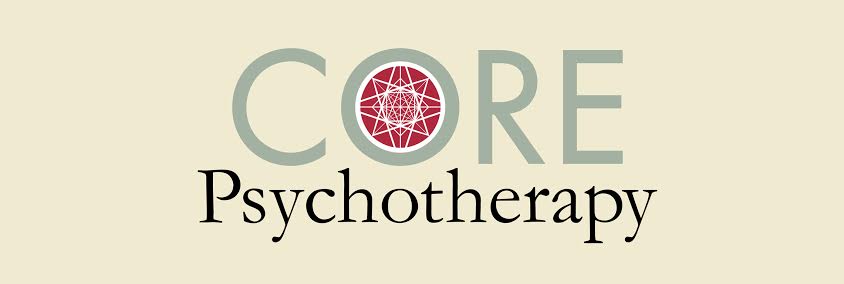WHAT IS PSYCHOANALYTIC PSYCHOTHERAPY?
1. What is Psychoanalytic Psychotherapy?
2. What is your approach to my symptom?
2. Resources: Very Accessible Short Videos
3. Resources: Very Accessible Short Articles
3. Resources: Introductory Books
WHAT IS PSYCHOANALYTIC PSYCHOTHERAPY?
"... the bottom line is that patients want to and need to be listened to. They want a therapist who can listen to them in depth. …. That is what psychoanalysis is. That is what we offer:
We listen to people in depth, over an extended period of time and with great intensity. We listen to what they say and to what they don’t say; to what they say in words and to what they say through their bodies and enactments. And we listen to them by listening to ourselves, to our minds, our reveries, and our own bodily reactions. We listen to their life stories and to the story that they live with us in the room; their past, their present, and future. We listen to what they already know or can see about themselves, and we listen to what they can’t see in themselves. We listen to ourselves listening. Psychoanalysis is a depth psychology, which means that we listen in depth and teach our students to listen.
Whatever managed care says, and whatever drugs are prescribed, and whatever the research findings, people still want to be listened to in depth and always will. That’s why there will always be patients who want and need an analytic approach and why there will always be therapists who need to learn it."
Lewis Aron, Psychoanalytic Perspectives,
interview by Jeremy Safran
What is your approach to my symptom?
As a clinic, we do not specialize in any particular symptom. We specialize in a philosophy towards treatment that applies to any complaint. As we see it, symptoms are just manifestations of an underlying issue or issues. If one only addresses a symptom without also addressing the underlying cause(s), our belief is that one just develops a new symptom. The myth of the Hydra—comes to mind— a monster that produces new heads each time one is cut off. Now, a new symptom may be preferable to the symptom one already has -- so we are not arguing that that cannot be valuable. It is just not our usual approach. We look to make more lasting, structural changes. In short, we hold in mind this sentiment, well articulated by the playwright, Terence, “I am Human and nothing human is alien to me.” That is our specialty.
Psychoanalytic Psychotherapy Resources
V I D E O S
• On Being a Patient (a short film on psychoanalytic psychotherapy by Garrick Duckler)
• The 7 Principles Of Psychoanalytic Psychotherapy (Transcript of Interview with Jonathan Shedler)
• Picturing It With Elliot Greenebaum (Interviews with Master Clinicians)
Psychoanalytic Psychotherapy Resources
A R T I C L E S
• The Efficacy of Psychodynamic Psychotherapy [view article] by Jonathan Shedler, Phd
• Where Is the Evidence for “Evidence-Based” Therapy? [view article] by Jonathan Shedler, PhD
• That Was Then, This is Now: An Introduction to Contemporary Psychodynamic Therapy [view article] by Jonathan Shedler, PhD
• The Second Coming of Sigmund Freud: How Psychoanalysis and Neuroscience Are Becoming Inextricably Interwoven [view article] by Kat McGowan
• Why I am Not a CBT Therapist and What is Psychodynamic Therapy by Rune Moelbak, Ph.D.
• What Causes Psychological Disorders by Rune Moelbak, Ph.D.
Psychoanalytic Psychotherapy Resources
B O O K S that provide an overview of psychoanalytic therapy
• Freud and Beyond by Stephen Mitchell and Margaret Black
• Psychoanalytic Psychotherapy: A Practitioner's Guide by Nancy McWilliams
B O O K S about the Relational approach to psychoanalytic therapy
• Hope And Dread In Psychoanalysis by Stephen Mitchell
• Relational Concepts in Psychoanalysis: An Integration by Stephen Mitchell
• Influence and Autonomy in Psychoanalysis by Stephen A. Mitchell
• Modes of Therapeutic Action by Martha Stark
• The Power of Countertransference by Karen Maroda
• Seduction, Surrender, and Transformation: Emotional Engagement in the Analytic Process (Relational Perspectives Book Series 13) by Karen Maroda
B O O K S about psychoanalytic theory and/or process
• Psychoanalytic Case Formulation by Nancy McWilliams
• Playing and Reality by Donald W. Winnicott
• Loves Executioner: and Other Tales of Psychotherapy by Irwin Yalom
• When Nietzsche Wept: A Novel of Obsession by Irwin Yalom
• Schopenhauer's Porcupines: Intimacy and It's Dilemmas by Deborah Luepnitz and Deborah Anna Luepnitz
• The Developing Mind: Toward a Neurobiology of Interpersonal Experience by Daniel Siegel
(Outlines recent research in human development, neuropsychology and attachment theory. Not technically psychoanalytic, but works very well with psychoanalytic object-relations theory and practice.)
• The Language of Psychoanalysis by Laplanche/Pontalis
• Looking Awry: An Introduction to Jacques Lacan by Zizek
